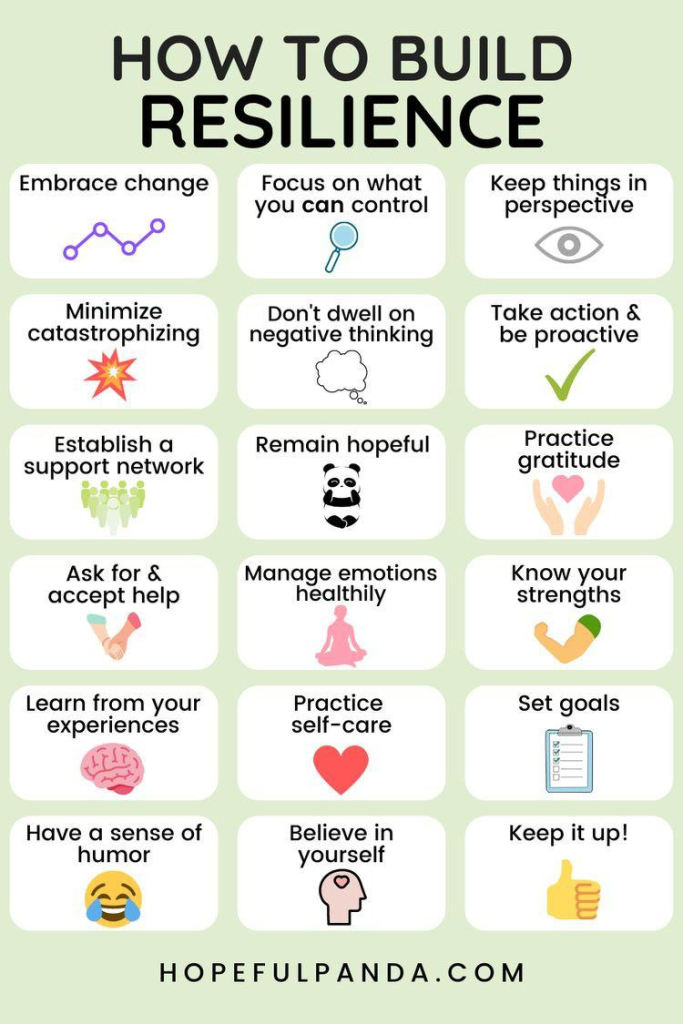Maintaining Emotional Resilience in Challenging Times: Tips and Strategies for a Stronger You

Emotional resilience is the ability to cope with and bounce back from adversity, trauma, and stress. It’s a vital skill that helps individuals navigate life’s challenges with confidence, agility, and hope. In today’s fast-paced, ever-changing world, maintaining emotional resilience is more important than ever. Whether you’re facing personal struggles, professional setbacks, or just the ordinary ups and downs of life, this article will provide you with practical tips and strategies to strengthen your emotional resilience.
Understanding Emotional Resilience
Before we dive into the tips, let’s understand what emotional resilience looks like. People with high emotional resilience typically:
- Can manage stress and anxiety effectively
- Bounce back from setbacks and failures
- Stay motivated and focused
- Maintain strong relationships with family, friends, and colleagues
- Are open to learning and growth
- Practice self-care and self-compassion
On the other hand, individuals with low emotional resilience may experience:
- Increased stress and anxiety
- Difficulty coping with trauma or adversity
- Low motivation and engagement
- Difficulty maintaining relationships
- A fixed mindset and reduced adaptability
Tip 1: Developing a Growth Mindset

Carol Dweck’s groundbreaking research on the growth mindset has shown that individuals who believe their abilities can be developed through effort and learning tend to perform better, recover more easily from setbacks, and maintain a more positive outlook. To develop a growth mindset:
- Practice self-reflection and acknowledge strengths and weaknesses
- Embrace challenges and view them as opportunities for growth
- Focus on learning and improvement rather than perfection
- Seek constructive feedback and use it to improve
Tip 2: Practicing Self-Care
Self-care is not a luxury; it’s a necessity for maintaining emotional resilience. Make time for activities that nourish your body, mind, and soul, such as:
- Regular exercise or physical activity
- Healthy eating and sleep habits
- Meditation, deep breathing, or yoga
- Creative pursuits or hobbies
- Spending time with loved ones or nature
Tip 3: Building a Support Network
Surround yourself with people who support, encourage, and motivate you. This can include:
- Close friends and family
- A therapist or counselor
- Support groups or online communities
- Positive role models or mentors
Tip 4: Developing Emotional Awareness
Emotional awareness is the ability to recognize and understand your emotions. This helps you respond to situations more effectively and maintain a sense of control. To develop emotional awareness:
- Practice mindfulness and self-reflection
- Identify and label your emotions
- Explore the underlying causes of your emotions
- Develop a self-compassionate response to challenging emotions
Tip 5: Focusing on the Present
The present moment is all we truly have. Focusing on the present can help you stay grounded and centered, even in the midst of chaos. To focus on the present:
- Practice mindfulness and meditation
- Engage in activities that bring you joy
- Set realistic goals and priorities
- Learn to let go of worries about the past or future
Tip 6: Practicing Gratitude
Gratitude is a powerful tool for building resilience. Focusing on what you’re thankful for can help shift your perspective, even in difficult times. To practice gratitude:
- Keep a gratitude journal
- Share gratitude with others
- Practice mindfulness and focus on the present
- Reflect on past successes and challenges overcome
Tip 7: Embracing Change
Change is inevitable, and resilience involves adapting to it. To build resilience, focus on:
- Embracing uncertainty and ambiguity
- Practicing flexibility and adaptability
- Focusing on the opportunities presented by change
- Developing a growth mindset
Conclusion and Call to Action
Maintaining emotional resilience requires effort, practice, and commitment. By incorporating these tips and strategies into your daily life, you’ll be better equipped to cope with challenges, bounce back from setbacks, and stay motivated and focused. We encourage you to share this article with others who may benefit from these tips and strategies. Share it with a friend, family member, or colleague, and start building your emotional resilience today.
Share this article:
Share on Facebook
Share on Twitter
Share on LinkedIn
Share on YouTube
Share on Google+
Remember, emotional resilience is a skill that can be developed over time with practice and patience. Start building your resilience today, and you’ll be stronger, more confident, and better equipped to handle life’s challenges.


